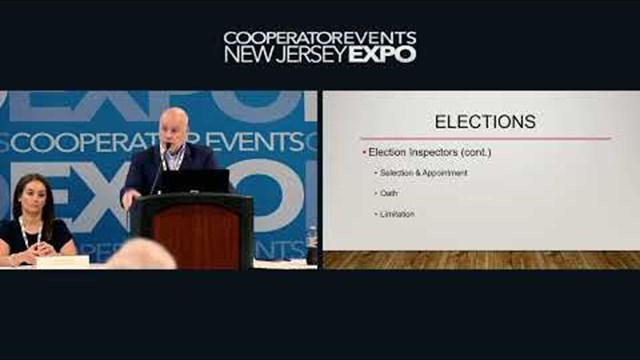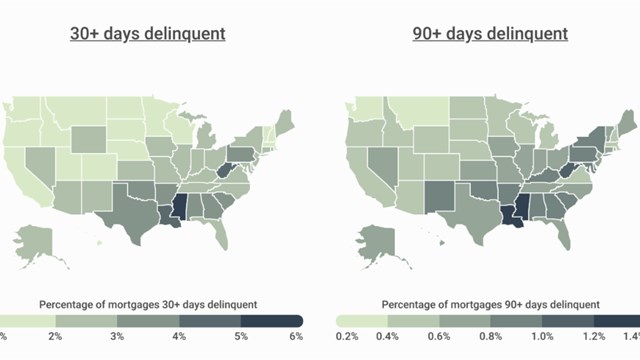Oftentimes co-op, condo and HOA boards are faced with difficult choices when it comes to enforcing their community’s rules and regulations. Board service isn’t an easy thing, and while board members want to be understanding of their fellow residents, they are both legally and morally obligated to enforce board decisions as needed. One possible option in dealing with serious infractions is to deny access to community amenities – or even to property access.
Where is the Precedent?
Infractions by co-op, condo or HOA members generally fall into two categories: rules violations and nonpayment of assessments and fees. The question arises as to whether a board of directors has the option to penalize members by restricting access to and use of amenities as punishment for infractions and nonpayment to begin with.
Scott Piekarsky, an attorney and president of Piekarsky & Associates in Wyckoff, New Jersey says, “In my experience, it can happen – but it’s got to be in the governing documents. I’ve had associations where the documents say that for certain violations, privileges such as use of house facilities can be suspended. Usually it’s a 30-day suspension, but then the resident has the right to a hearing. Now, in New Jersey we have to offer ADR – alternative dispute resolution – for just about everything and anything. So, (1) the clause must be in the governing documents, (2) the suspension is only for a limited time, and (3) the association must offer the offending resident ADR.”
Chris Florio is an attorney with Stark & Stark in Lawrenceville, New Jersey, and represents co-op and condominium boards and associations as well as HOAs. He supports Piekarsky’s assessment that authority emanates from the governing documents. “Co-ops are a bit different, but in a condo setting, the thing we have to be concerned with in New Jersey,” he says, “ is that if there is a debtor, and the documents allow us, we can deny access for certain infringements. For instance, if we have a community with on-street parking, we can utilize ‘not-a-member-in-good-standing’ status to prevent the resident from parking and as a means to tow his/her car. But there are some things that must be set up before an association can do this. In New Jersey there is something called the Predatory Towing Prevention Act, and unfortunately community associations are covered by this law, which basically sets forth that the association must have certain signage with special statutory language in place. If they have that sign with that language, we suggest that a board adopt appropriate language [in their documents] that will permit towing for non-payment of fees. It’s very effective, because people need their cars.”
Understanding Terms, Conditions and Distinctions
To delve a bit further into the do’s and don’ts of this legal landscape, Piekarsky says, “There is wide discretion for rules and regulations in the New Jersey Condominium Act, but to the best of my recollection we don’t have any specific language in the Act dealing with the issue of denying access. It must be in the governing documents of the condominium.” He cautions that if the appropriate language isn’t there, “You would have to amend the governing documents [to include it]. The board would need to call a vote and a super majority would be needed. Sixty-five to 75 percent of the residents would have to agree to the modification, which would become effective upon recording of the document. It should also be remembered that under the case law with regards to cases of non-payment or arrearages, the association would have to offer the resident ADR.”
Piekarsky brings up another consideration, which is whether the issue with a given resident is monetary, or behavioral. Arrears are one thing; flouting pool safety rules or set hours of operation is another matter. “An association could set forth a rule or regulation as to use of community facilities, and if these rules are violated they could impose fines,” for say pool or health club infractions. “But this couldn’t be done on a wholesale basis, to say a resident can no longer use these facilities. I don’t think they could do that. That’s a different nuance because it’s not a monetary issue.”
Florio also points out an important distinction between condominium and co-op buildings when it comes to this. “With co-ops there is more authority, because the co-op owns the entire property. However, even with a proprietary lease I would suggest you have a look at the lease for compliance before taking this kind of action. Make sure you cross your T’s and dot your I’s.”
In condominium communities, Piekarsky stresses that “They have to look at the governing documents, their master declaration, master deed and bylaws. We look at those things, and we see what the association’s needs are and what the documents provide for. At the same time, we look at the condo act and at the related case laws and we consider specific scenarios to determine if the access denial is permitted by the association’s documents and by state law.”
Legal Standing
It is important for condominium associations to make sure they are acting within the law at all times. “As it relates to rules violation,” says Florio, an association should “send a letter telling the resident they are in violation of the rules. Send the ‘nice letter.’ If the violations continue, send another letter. If there is a fining mechanism in the association’s documents, we might assess a fine. I always tell clients that if a fine or the suspension of rights will be involved, you need to make an offer of ADR first. That doesn’t mean it has to or will occur, but the association has to be reasonable and make the offer. If the issue is non-payment, they may go forward with fining or denial of access. We do have clients who have negated key fobs for accessing the clubhouse. You can do that. And I can’t emphasize enough: ask yourself whether is there something in your documents or the statutes or the resolution that you’re not following before you take action. Don’t cut your neck because you didn’t follow your own rules.”
Piekarsky makes another good argument: “You’ve got to be careful. Today we see lots of complaints filed for discrimination which are based on spurious grounds. You have to be very careful. People are quick to file a claim with the state or a specific state agency. The last thing a board really wants is to spend extra fees on something like this. You need to do things in a measured, reasonable way. The association’s board of directors should always seek legal advice on this type of thing before making a decision.”
One such example involves a case recently adjudicated in New York State. Marc Schneider, a co-op and condo attorney with Schneider Buchel LLP, which has offices in New York City and Garden City, describes the case – known as Delkap Management vs. The New York State Division of Human Rights – as follows: A shareholder lived in an apartment in a garden-style co-op complex for many years. She was handicapped. The co-op did not permit dogs. Eventually the shareholder’s daughter moved in – with a dog. Two weeks after her daughter and the dog moved in, the shareholder requested that the co-op provide her with a reasonable accommodation allowing a service animal in her apartment. The board had previously granted this shareholder a reasonable accommodation for a parking space close to her apartment for her disability.
“The board requested that the shareholder submit a doctor’s note” attesting to the shareholder’s need for a service animal,” Schneider says. “The shareholder’s doctor sent a letter recommending that the shareholder keep a dog and the preferred parking space. The board said no. They advised the shareholder to remove the dog, and fined her $700. The shareholder then filed a complaint with the Division of Human Rights. Instead of handing the complaint to their attorney, the co-op’s response was to tell the shareholder she would be evicted and to revoke her parking space. They refused to accept her maintenance and sought a summary proceeding to evict her. Ultimately, they reinstated her parking privileges, however the damage was done. Then, prior to a determination by the Division of Human Rights, the co-op told the shareholder that the Division issued an order in favor of the co-op, when they had not. The shareholder moved out with the dog and her daughter; however the ultimate finding was in her favor, and said the co-op discriminated against her. The Administrative Law Judge held that the co-op was guilty and levied penalties against it.
“The co-op filed a proceeding to appeal,” continues Schneider. “In the end, the appellate division determined that the Division of Human Rights was wrong – the shareholder didn’t require the dog because of insufficient evidence, as she had lived in the apartment for years with her disability and without the dog. The dog showed up when her daughter did. As such, no discrimination was found, but because of the co-op’s actions, the damages remained, but were reduced. The lesson we learn here is to turn these requests over to your lawyer. Don’t try to resolve it yourself doing silly, retaliatory things.”
Piekarsky agrees, and echoes Florio’s point that before taking any such extreme action, it’s always good to send out a warning letter and give the resident an opportunity to correct the problem. Co-ops, condominiums and HOAs are communities, and residents have to live together. It’s always better not to create situations where bad feeling lingers and can poison the environment.
Another Case in Point
Florio describes a situation in which a client association leases parking spaces in a garage that is common property to the condominium association. Residents with parking spaces hold a lease to the space. The lease is in good standing if the resident is in good standing, including keeping current on their common charges. Recently, two members were in arrears. The association asked Florio to pursue them based upon the parking garage lease terms. “Here was the conundrum,” he explains: “Because they have this form of lease [for their parking space], we are treating it similarly to how one would treat a unit lease. Certain rights come with it. We went to court to get an order from the court that because the lessor was in arrears, the parking spot lease was null and void and we could tow their car,” for non-payment of common charges.
Ultimately, it is important for every policy/rule to be consistent, transparent and fair, applied uniformly and connected to a purpose of the association. And remember, don’t pass policies you can’t monitor and make sure that all fines and restrictions are to apply to all persons living in a unit.
A.J. Sidransky is a published novelist and a staff writer and reporter for The New Jersey Cooperator.










Leave a Comment